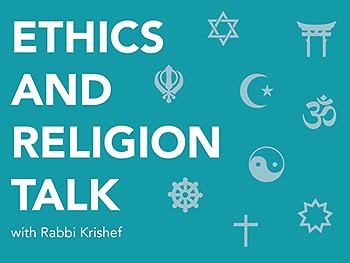Jim A. writes: While sitting in church this week I pondered the thought, what does it mean to live a Christian lifestyle as my wife and I consider we do? My following thought was how would this be different from living a Jewish lifestyle, a Muslim lifestyle, a Hindu lifestyle? My first thought is that we are more similar than different as we try to live our faith lifestyles.
Fred Stella, the Pracharak (Outreach Minister) for the West Michigan Hindu Temple, responds:
I certainly agree that those of us who are influenced by some form of transcendence do share the same values in most instances. We all strive for a compassionate life, refraining from doing harm to others and seeking to improve the lives of those in unfortunate circumstances. But there are some significant differences as well. For instance, one who embraces a Christian lifestyle might consider it important to share the Gospel with the non-Christian. Those in some other traditions (including Hinduism) would not make any attempts to persuade someone to join their religion. To some, dietary choices are important. So while a good Christian need not be concerned with the origin of today’s hamburger at lunch, a Muslim or Jew would require that the animal was slaughtered in particular ways and a Hindu would refrain from all beef whatsoever. While all religions encourage the virtue of modesty, how that is actually put into practice differs from faith to faith. People (mostly women) who are accepted at their own houses of worship would be barred entry from others due to different standards of acceptable dress.
But I wholly accept the basic tenet of your question. There is clearly more that binds us than separates us.
Rev. Ray Lanning, a retired minister of the Reformed Presbyterian Church of North America, responds:
There is danger in defining the ‘Christian lifestyle’ by comparing Christians with Jews, Muslims, or Hindus. On those terms, you can only discuss external customs, such as dress, diet, ritual, etc. Christ teaches that such externals have little or no bearing on what we are at heart, and where we stand with God. Christianity is first of all a matter of what we believe in our hearts, and how it comes to expression in our lives.
‘Not every one that saith unto me, Lord, Lord, shall enter into the kingdom of heaven; but he that doeth the will of my Father’ (Matthew 7:21). ‘If any man will come after me, let him deny himself, and take up his cross, and follow me’ (Matthew 16:24). These are Christ’s own terms of discipleship. We follow Christ by walking as He walked: trusting in God as our Father, hating sin and doing God’s will from the heart, loving and serving others in God’s name, ‘that so we may testify, by the whole of our conduct, our gratitude to God for His blessings, and that He may be praised by us’ (Heidelberg Catechism, Q. 86).
The Reverend Colleen Squires, minister at All Souls Community Church of West Michigan, a Unitarian Universalist Congregation, responds:
The most important way to live a Unitarian Universalist life is to affirm and promote the inherent worth and dignity of every person. Some say this is equal to the Golden Rule to do unto others as you would have them do unto you or the same as Jesus’ second commandment to love your neighbor as yourself. This is not complicated but at times it can challenge us to dig deep for strength from within.
To practice this in real life means to be on the side of the refugee, the immigrant, the impoverished, those without housing, those with mental illness, those who are addicted, and the oppressed. It often calls us to speak against those in power and those with wealth. In these times it may even call us to speak against the leaders who divide the people rather than inspire a nation.
Dr Sahibzada, the Director of Islamic Center and Imam of the Mosque of Grand Rapids, responds:
Humans are creation of God. He has made us into various tribes and nations only to know each other. Therefore, we should not divide religion of God into various denominational lifestyles. Most important is to do God’s work wherever we are. A lay person devotes much time to the material world. Lifestyle has nothing to do with religion; however, some features may be apparent in devotees of religion. A person offering the services to the cause of faith in a holy environment is being mindful of God most of time. Almighty God declares that most beloved and honored to me are those who are righteous and God-fearing.
My response:
To live a Jewish life is to be engaged in doing mitzvot, God’s commandments, ranging from prayer to dietary laws to Sabbath observance to supporting other people (and more). For traditional Jews, at least, our lifestyle marks us apart from those of other faiths.
This column answers questions of Ethics and Religion by submitting them to a multi-faith panel of spiritual leaders in the Grand Rapids area. We’d love to hear about the ordinary ethical questions that come up on the course of your day as well as any questions of religion that you’ve wondered about. Tell us how you resolved an ethical dilemma and see how members of the Ethics and Religion Talk panel would have handled the same situation. Please send your questions to [email protected].
The Rapidian, a program of the 501(c)3 nonprofit Community Media Center, relies on the community’s support to help cover the cost of training reporters and publishing content.
We need your help.
If each of our readers and content creators who values this community platform help support its creation and maintenance, The Rapidian can continue to educate and facilitate a conversation around issues for years to come.
Please support The Rapidian and make a contribution today.
